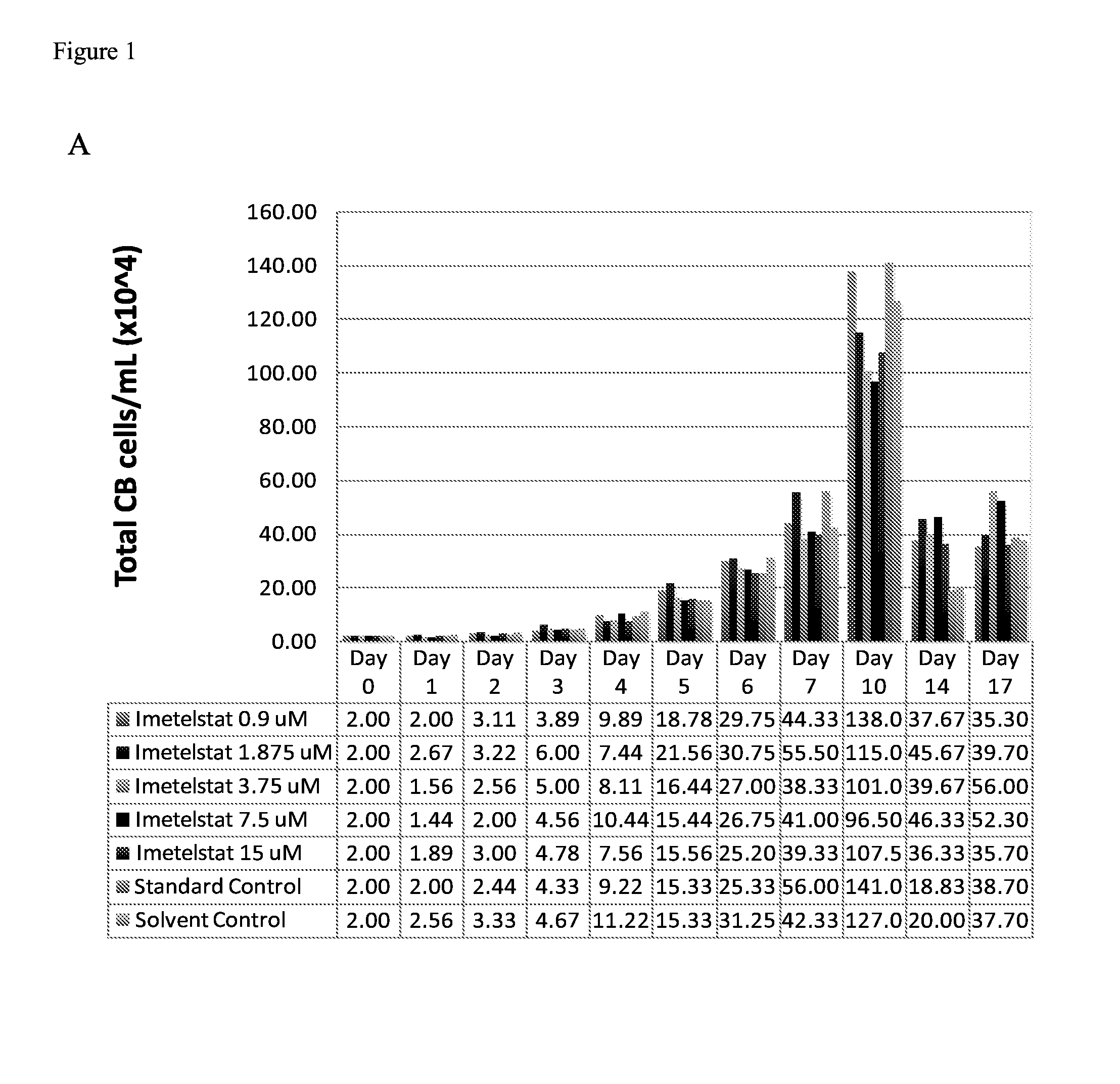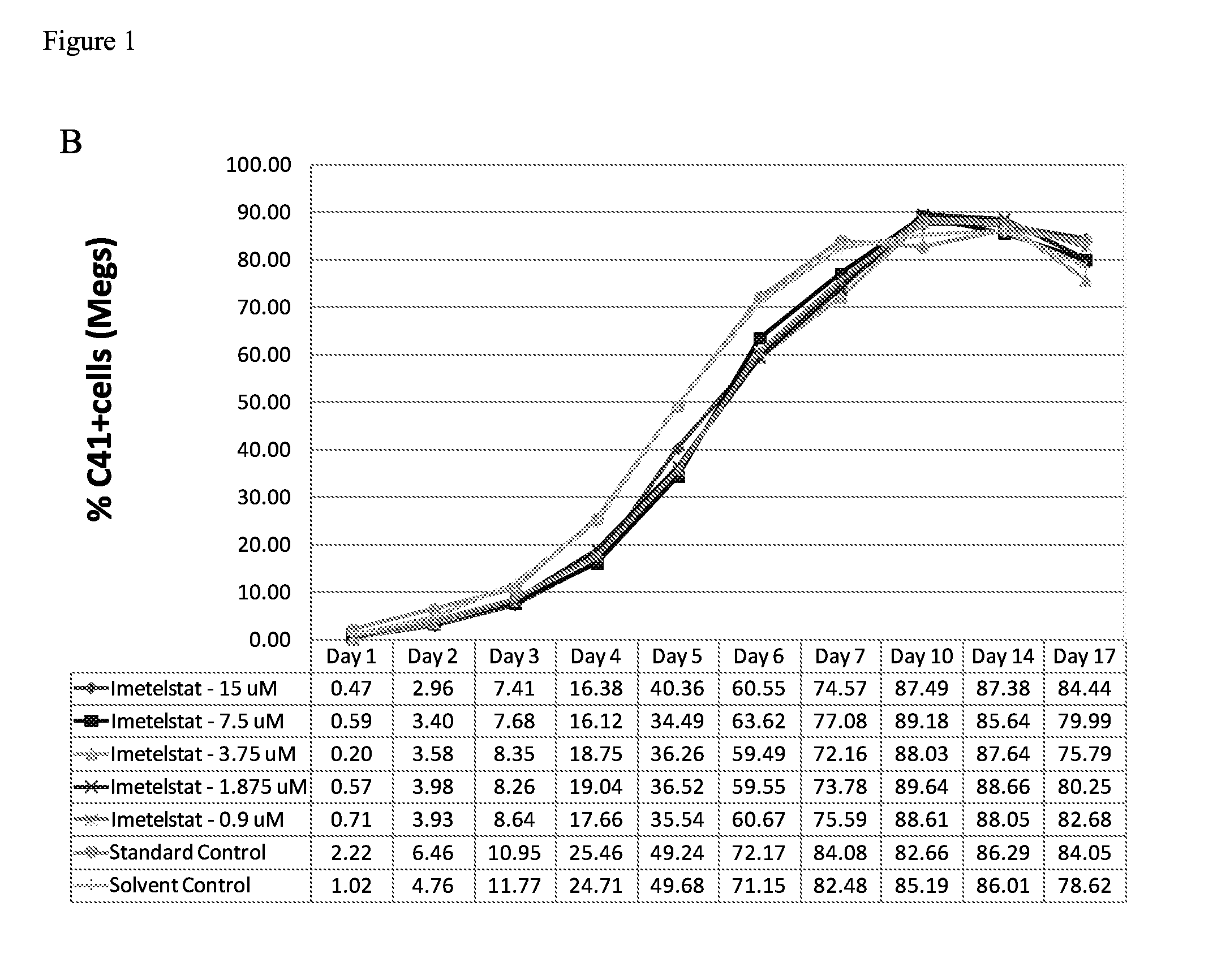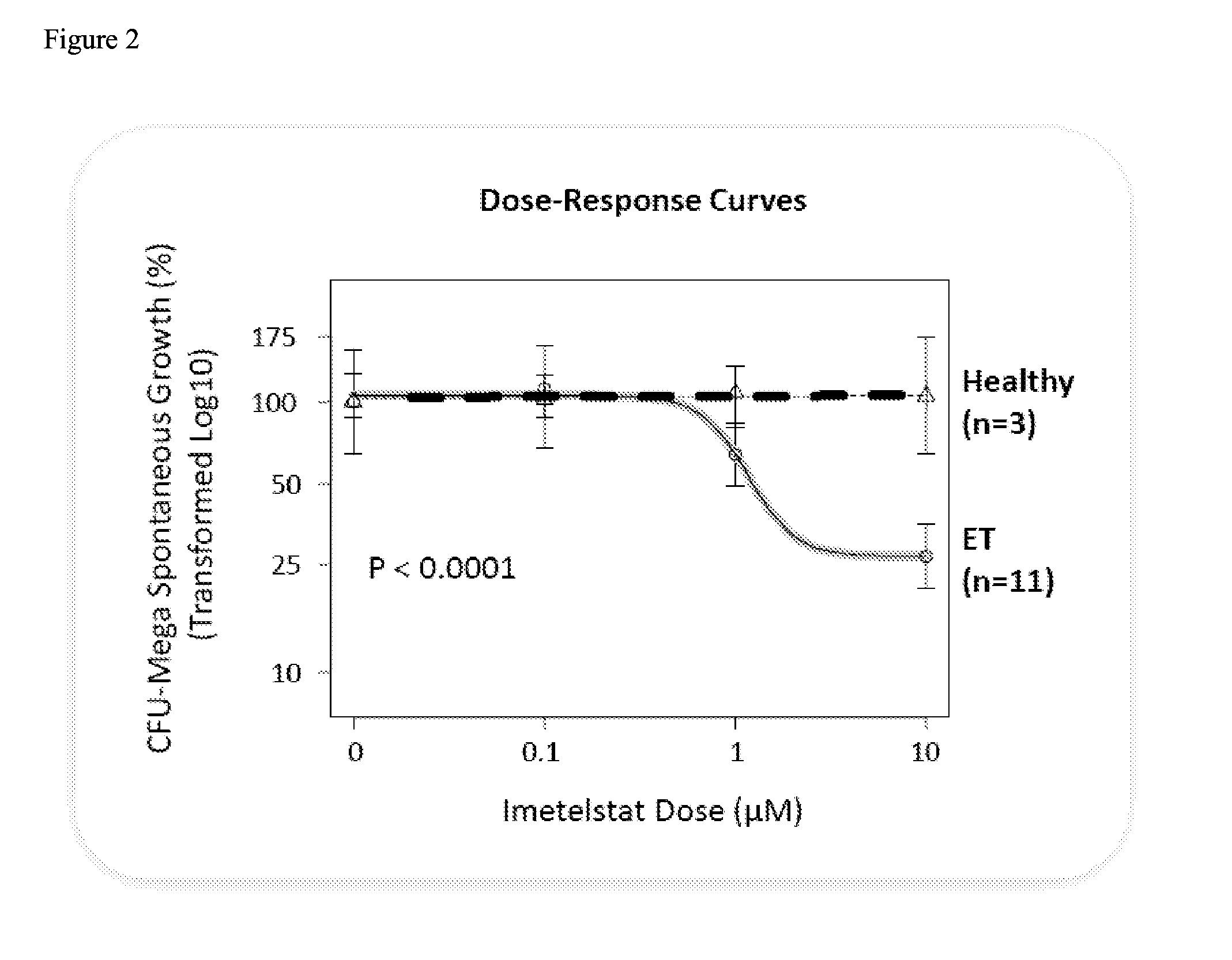Use of Telomerase Inhibitors for the Treatment of Myeloproliferative Disorders and Myeloproliferative Neoplasms
a technology of telomerase inhibitors and myeloproliferative neoplasms, which is applied in the direction of enzymology, biochemistry apparatus and processes, transferases, etc., can solve the problems of pv patients having an increased risk of cardiovascular and thrombotic events, patients with pv have an increased risk of primary myelofibrosis, and no existing therapies specifically target neoplastic progenitor cells, etc., to redu
- Summary
- Abstract
- Description
- Claims
- Application Information
AI Technical Summary
Benefits of technology
Problems solved by technology
Method used
Image
Examples
example 1
Preparation and Lipid Conjugation of Oligonucleotide N3′→P5′ Phosphoramidates (NP) or N3′→P5′ Thiophosphoramidates (NPS)
[0147]This example shows how to synthesize lipid conjugated Oligonucleotide N3′P5′ Phosphoramidates (NP) or N3′P5′ Thiophosphoramidates (NPS).
Materials and Methods
[0148]Starting Compounds
[0149]These compounds may be prepared as described, for example, in McCurdy et al., Tetrahedron Letters 38: 207-210 (1997) or Pongracz & Gryaznov, Tetrahedron Letters 49: 7661-7664 (1999). The starting 3′-amino nucleoside monomers may be prepared as described in Nelson et al., J. Org. Chem. 62: 7278-7287 (1997) or by the methods described in Gryaznov et al., US Application Publication No. 2006 / 0009636.
[0150]Lipid Attachment
[0151]A variety of synthetic approaches can be used to conjugate a lipid moiety L to the oligonucleotide, depending on the nature of the linkage selected; see, for example, Mishra et al., Biochim. et Biophys. Acta 1264: 229-237 (1995), Shea et al., Nucleic Acids ...
example 2
Imetelstat Inhibits the Spontaneous Growth of CFU-Meg In Vitro from Essential Thrombocythemia Patients and Myelofivrosis Patients but not from Healthy Individuals
[0158]This example demonstrates a dose-dependent suppression of colony-forming unit megakaryocytes (CFU-Mega) by imetelstat in patients with essential hrombocythemia or Myelofibrosis independent of the JAKV617F mutational status or cytoreductive therapy, suggesting a specificity of imetelstat for malignant megakaryocytic cells.
Materials and Methods
[0159]For determining imetelstat effect on megakaryocyte growth and differentiation the following methods were used: (1) cord blood (CB) cells were enriched for CD34+ expressing cells using a negative cell separation system; (2) cells were incubated with imetelstat (1-15 μM) in serum-free liquid medium, StemSpan® SFEM, containing a cytokine formulation designed for the development of megakaryocyte progenitor cells; (3) cord blood cells were cultured for a total of 17 days; and (4)...
example 3
Phase II Trial to Evaluate the Activity of Imetelstat (GRN163L) in Patients with Essential Thrombocythemia Who Require Cytoreduction and have Failed or are Intolerant to Previous Therapy, or Who Refuse Standard Therapy (Phase II Imetelstat ET Study)
[0166]This example demonstrates imetelstat rapidly induces and maintains substantial hematologic and molecular responses in patients with essential thrombocythemia (ET) who were refractory to or intolerant to prior therapy.
Materials and Methods
[0167]Clinical Trial Design
[0168]Patients with ET who had failed or were intolerant to at least one prior therapy (or who had refused standard therapy) and required cytoreduction were induced with 7.5-11.7 mg / kg Imetelstat given as a 2 hour intravenous infusion weekly, with doses titrated to platelet response. When a platelet count of 250-300×103 / μL was achieved, maintenance dosing with imetelstat was then initiated with doses increased or decreased based upon platelet response and toxicity, with a ...
PUM
| Property | Measurement | Unit |
|---|---|---|
| concentration | aaaaa | aaaaa |
| concentration | aaaaa | aaaaa |
| concentration | aaaaa | aaaaa |
Abstract
Description
Claims
Application Information
 Login to View More
Login to View More - R&D
- Intellectual Property
- Life Sciences
- Materials
- Tech Scout
- Unparalleled Data Quality
- Higher Quality Content
- 60% Fewer Hallucinations
Browse by: Latest US Patents, China's latest patents, Technical Efficacy Thesaurus, Application Domain, Technology Topic, Popular Technical Reports.
© 2025 PatSnap. All rights reserved.Legal|Privacy policy|Modern Slavery Act Transparency Statement|Sitemap|About US| Contact US: help@patsnap.com



